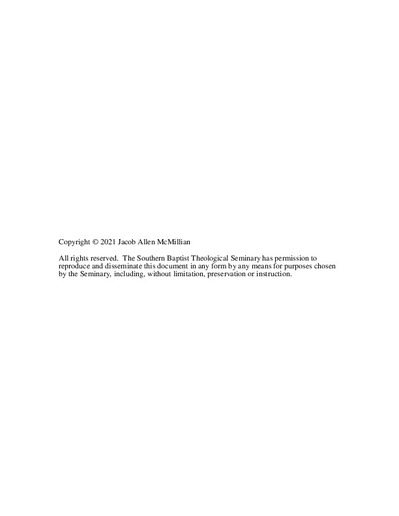Speech Act Theory and the Theological Convictions of Preaching
Subject
PreachingSpeech acts (Linguistics)
Abstract
This dissertation explains and expresses biblical preaching’s theological convictions, specifically the preaching event, using the linguistic theory, Speech Act Theory (SAT). Chapter 1 introduces and supports preaching as a priority of Christianity by providing theological convictions about the theological conversation between the preacher, Holy Spirit, the Bible, and the hearer. The chapter concludes by stating the dissertation's thesis and the contributions a linguistic explanation provides for understanding preaching. Chapter 2 provides a brief theology of preaching and the four parties included in the preaching event. Chapter 3 focuses on introducing the reader to SAT by establishing the principle concepts and vocabulary of the theory.
Chapter 4 explicitly examines the locutionary act and its relationship with preaching. The chapter demonstrates preaching’s locutionary acts are Spirit-compelled and empowered utterances of theocentric content. Chapter 5 explains that preaching’s illocutionary acts are Spirit-filled actions of declaring Jesus and calling for repentance and faith. Chapter 6 shows that preaching utilizes oral communication’s perlocutionary acts to accomplish the applicational aim of transformation. The final chapter summarizes the main points of the dissertation. It provides a linguistic understanding of biblical preaching—the Holy Spirit empowering and compelling the preacher to utter theocentric locutions in Spirit-filled illocutionary acts for perlocutionary transformation.

